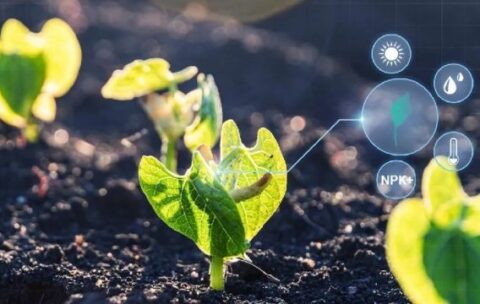Practical Applications of AI in Food Security
The Practical Applications of AI in Food Security course focuses on utilizing …
What you'll learn
- Fundamentals of AI: Understand the basic concepts of artificial intelligence and its relevance to agriculture.
- Data Collection Techniques: Explore various methods for collecting agricultural data, including remote sensing, IoT sensors, and field surveys.
- Machine Learning Models: Gain insights into building and training machine learning models tailored for agricultural applications.
- Deep Learning Applications: Discover how deep learning techniques, particularly convolutional neural networks, can be used for tasks such as crop disease detection.
- Real-World Case Studies: Analyze case studies that demonstrate the successful implementation of AI technologies in agriculture.
- Ethical Considerations: Discuss the ethical implications of using AI in agriculture and how to address potential challenges.
Integrating AI and Machine Learning for Climate-Smart Agriculture
Course Description The Integrating AI and Machine Learning for Climate-Smart Agriculture course …
What you'll learn
- Understand Climate Resilience: Gain insights into the concept of climate resilience and its significance in agriculture. Learn how climate change impacts farming and the importance of adapting practices to ensure food security.
- Explore Sustainable Practices: Discover various sustainable agricultural practices, including crop diversification, soil health improvement, and efficient water management techniques. Understand how these practices contribute to building resilience in farming systems.
- Engage in Hands-On Activities: Participate in practical workshops where you will implement climate-resilient practices. From soil health assessments to water management techniques, you will gain valuable experience that can be applied in real-world agricultural contexts.
- Develop Adaptation Strategies: Work collaboratively to create actionable plans for local farmers, focusing on how to implement climate-resilient practices effectively. Learn to assess local conditions and tailor strategies to meet specific challenges.
- Reflect on Future Directions: Engage in discussions about the future of agriculture in a changing climate. Explore the role of technology, community engagement, and policy advocacy in promoting sustainable practices.
Mastering Data Science: Transform Data into Decisions
Unlock the transformative power of data with our Mastering Data Science: …
What you'll learn
In this course, you will embark on a journey through the essential components of data science. You will start by learning the fundamentals of data collection and preparation, gaining insights into how to gather and clean data from various sources. This foundational knowledge is critical, as the quality of your data directly influences the accuracy of your analyses.
As you progress, you will delve into Exploratory Data Analysis (EDA), where you will learn to summarize and visualize data to uncover hidden patterns and trends. This skill is vital for making informed decisions based on data insights. You will explore various visualization techniques, enabling you to present complex information in a clear and engaging manner.
The course will also introduce you to advanced data analysis techniques, including statistical modeling and machine learning. You will learn how to apply these methods to solve real-world problems, optimizing operations and driving strategic decision-making within organizations. Additionally, you will gain experience in using popular data science tools and programming languages, such as Python and R, which are essential for any data scientist.
Finally, you will learn how to effectively communicate your findings to diverse audiences. Understanding how to tell a compelling story with data is crucial for influencing decision-makers and driving change within organizations. By the end of this course, you will be equipped with the skills and confidence to transform data into actionable insights, positioning yourself as a key player in the data-driven landscape of today’s job market.





